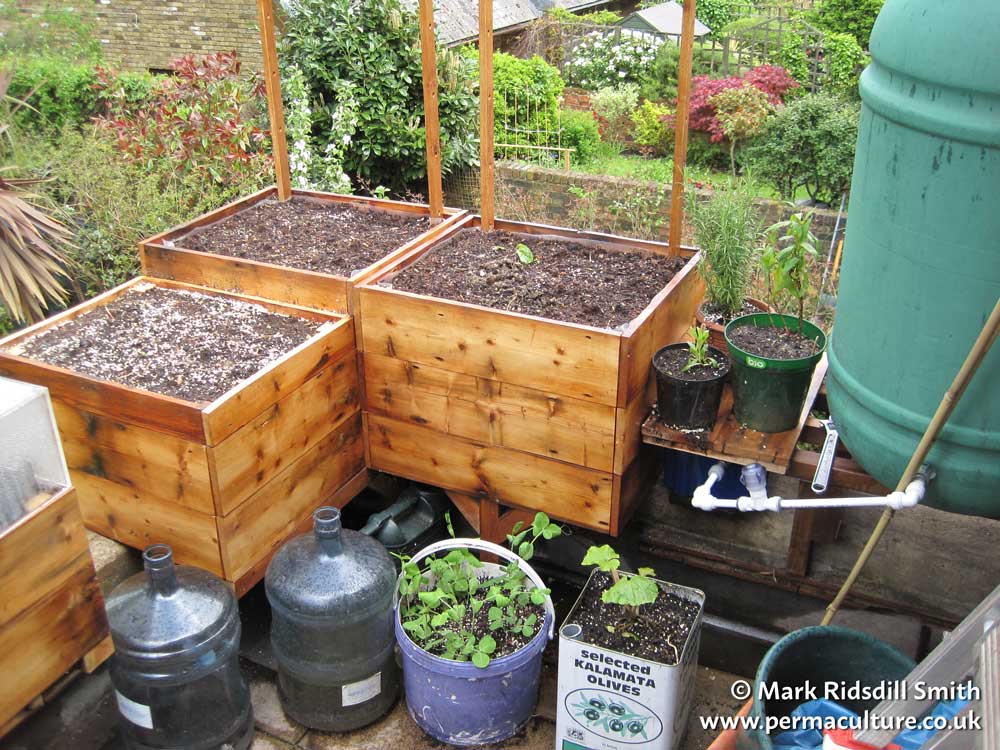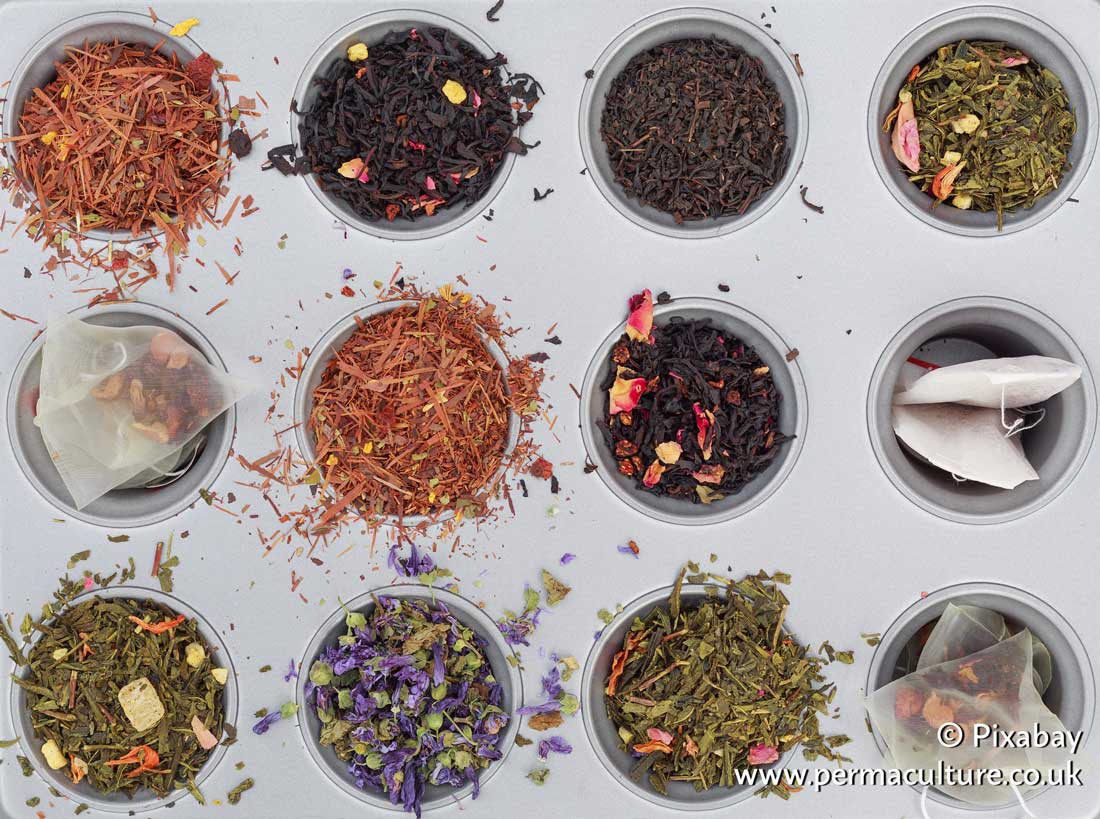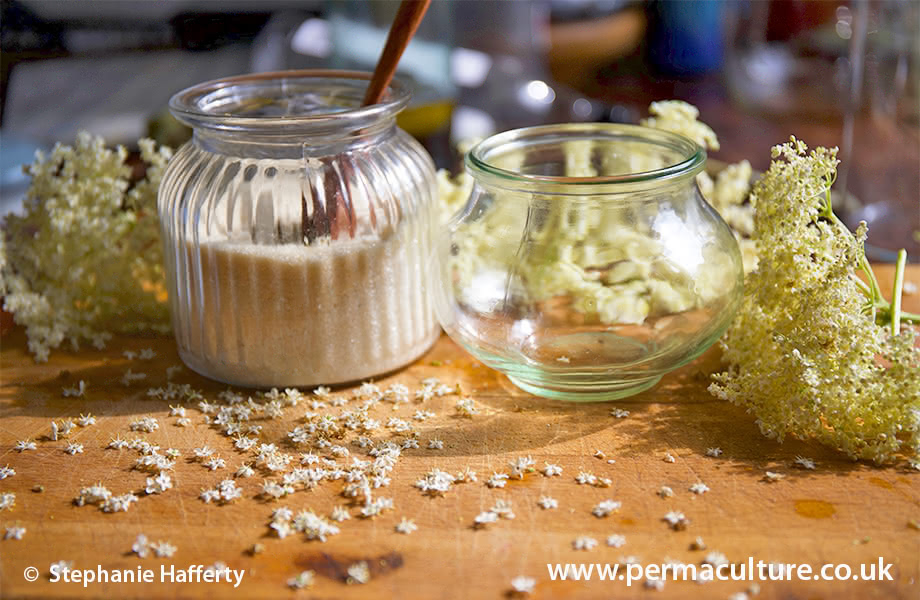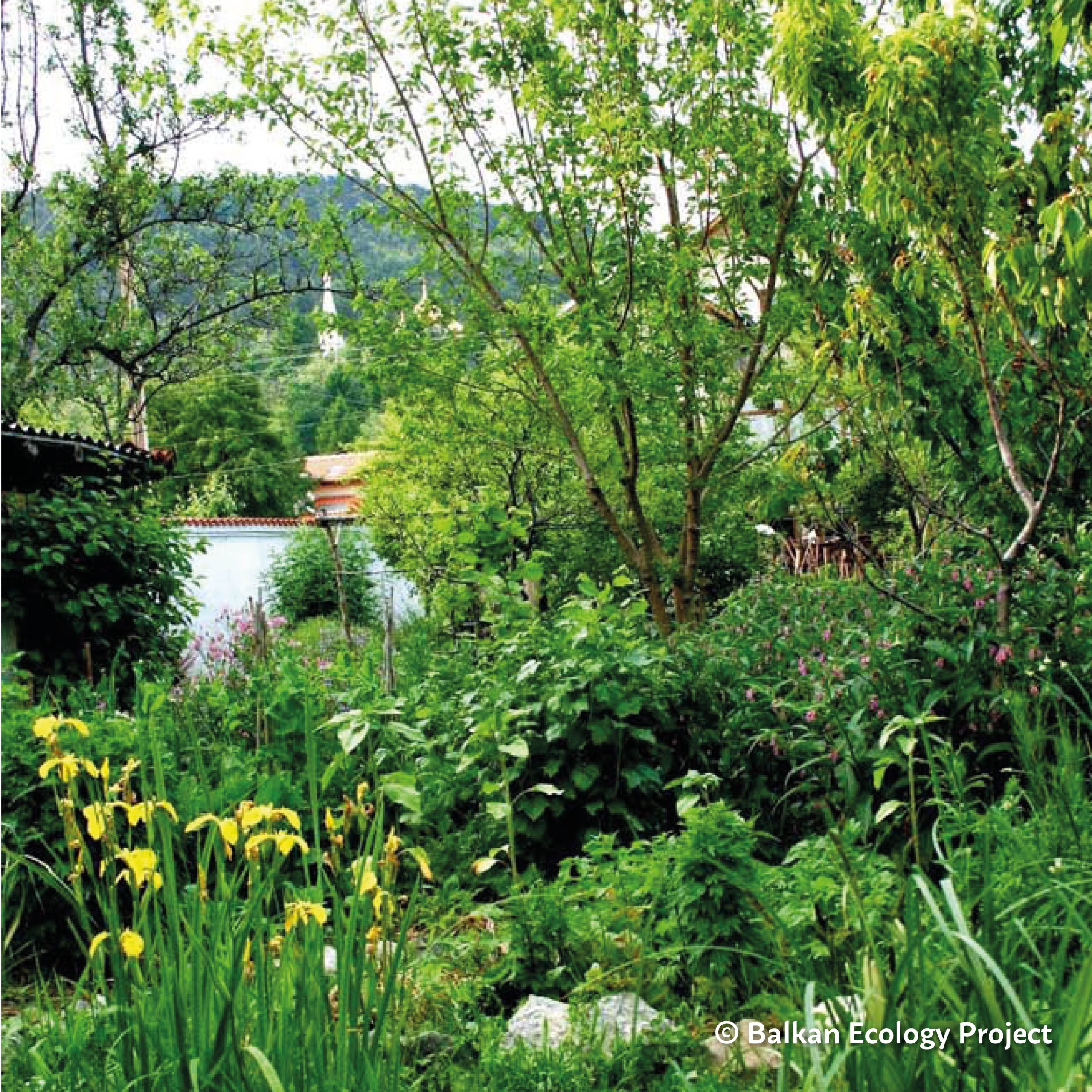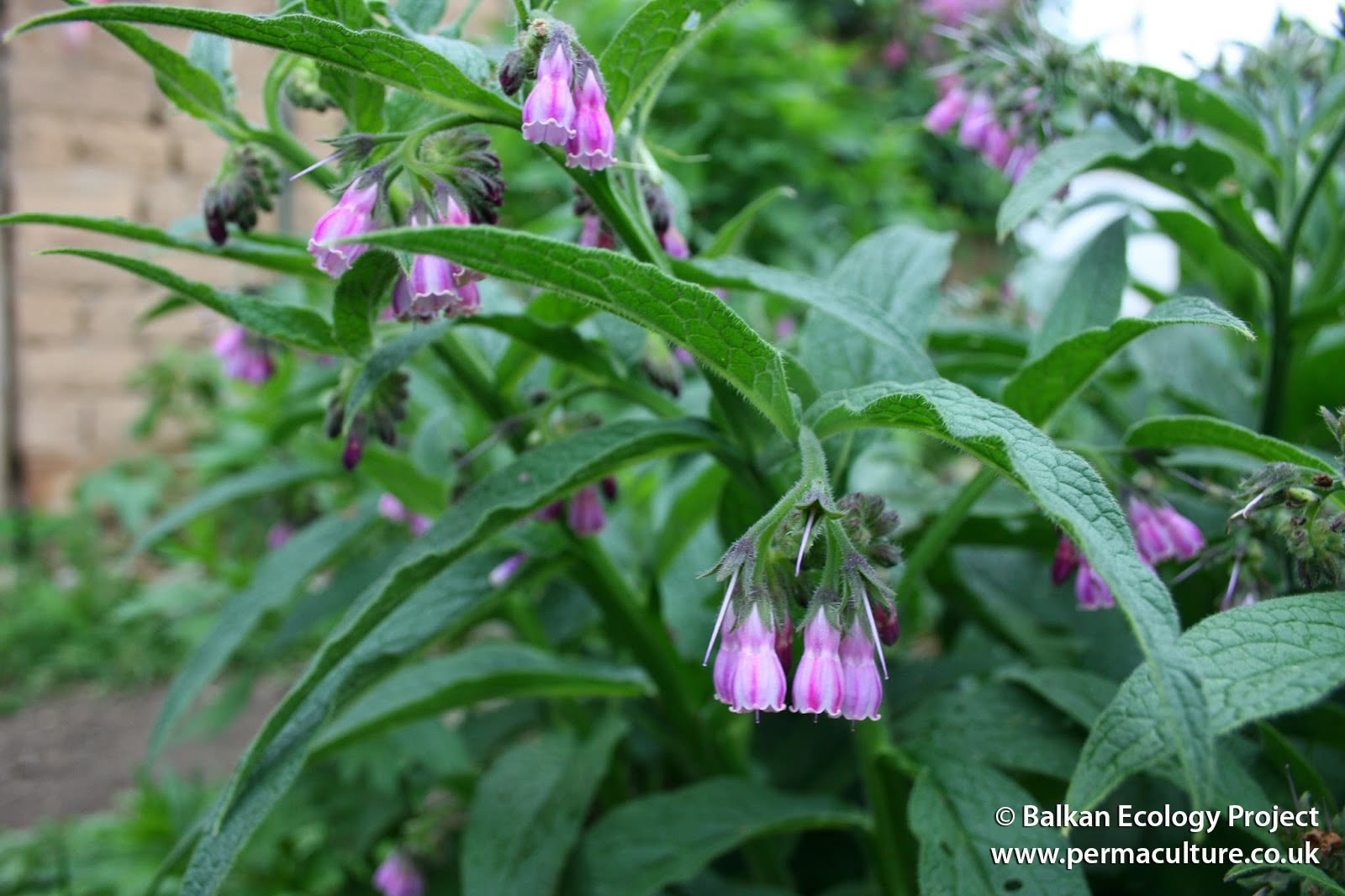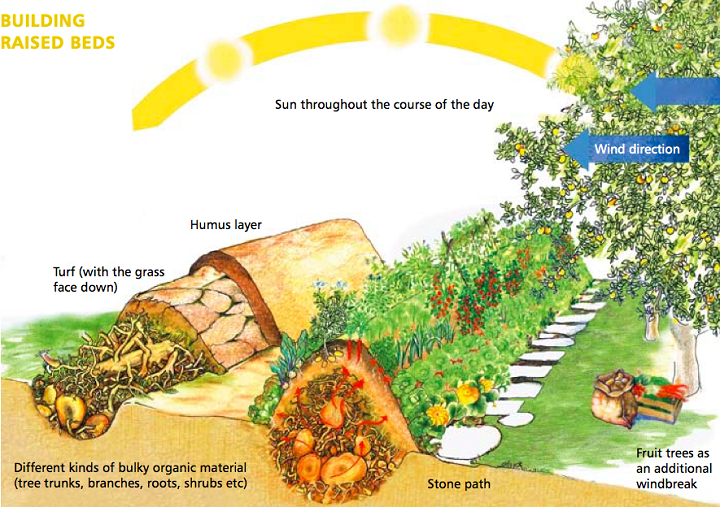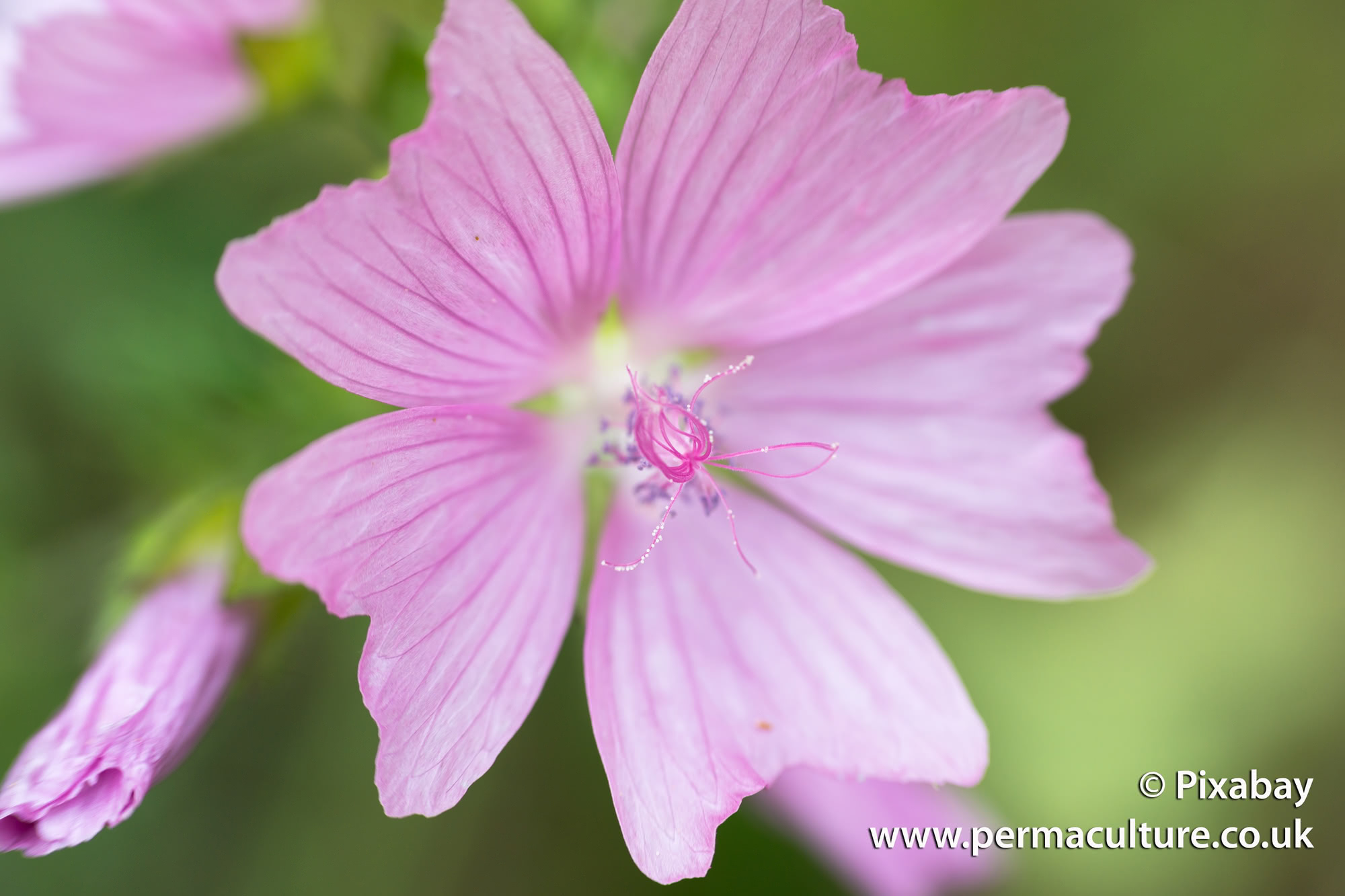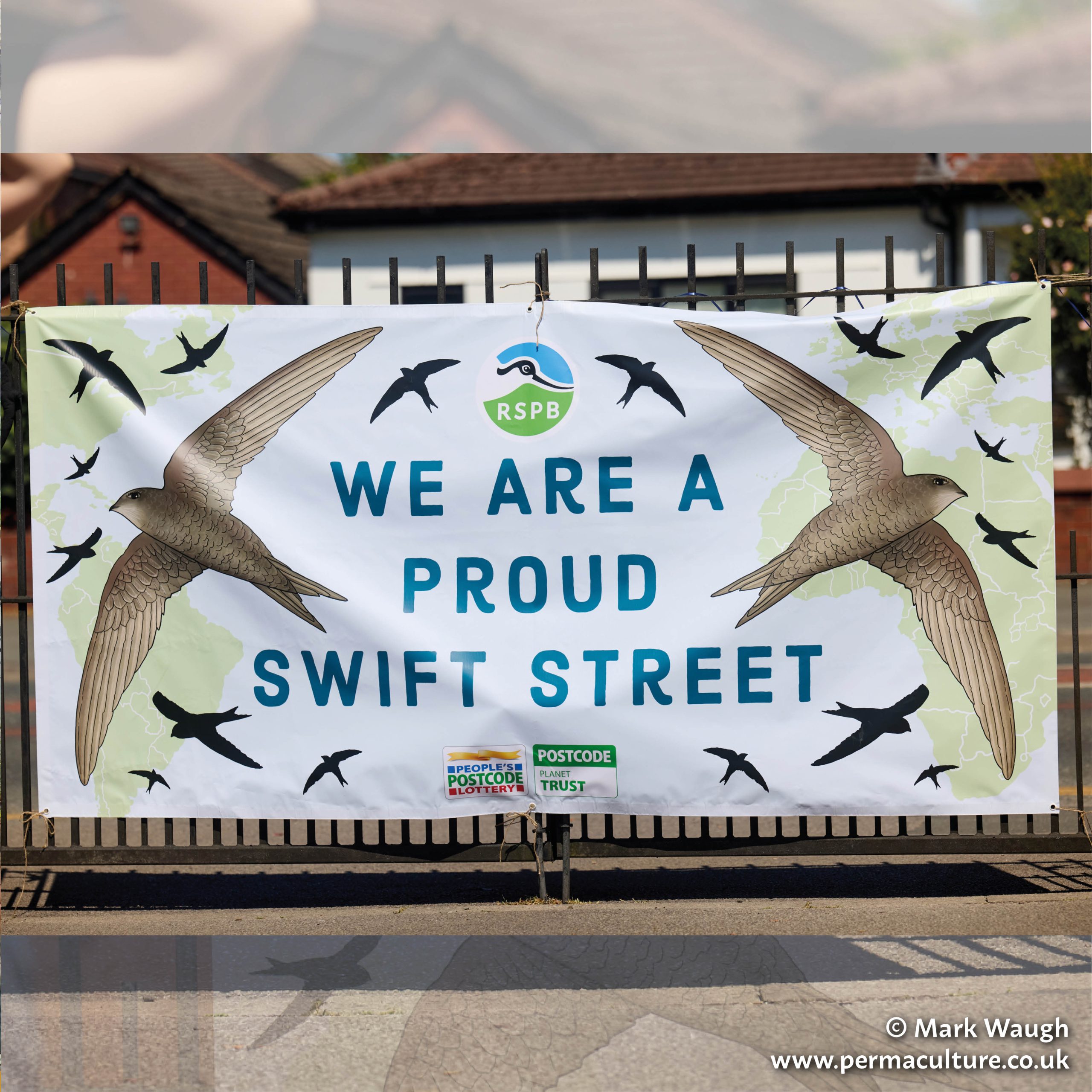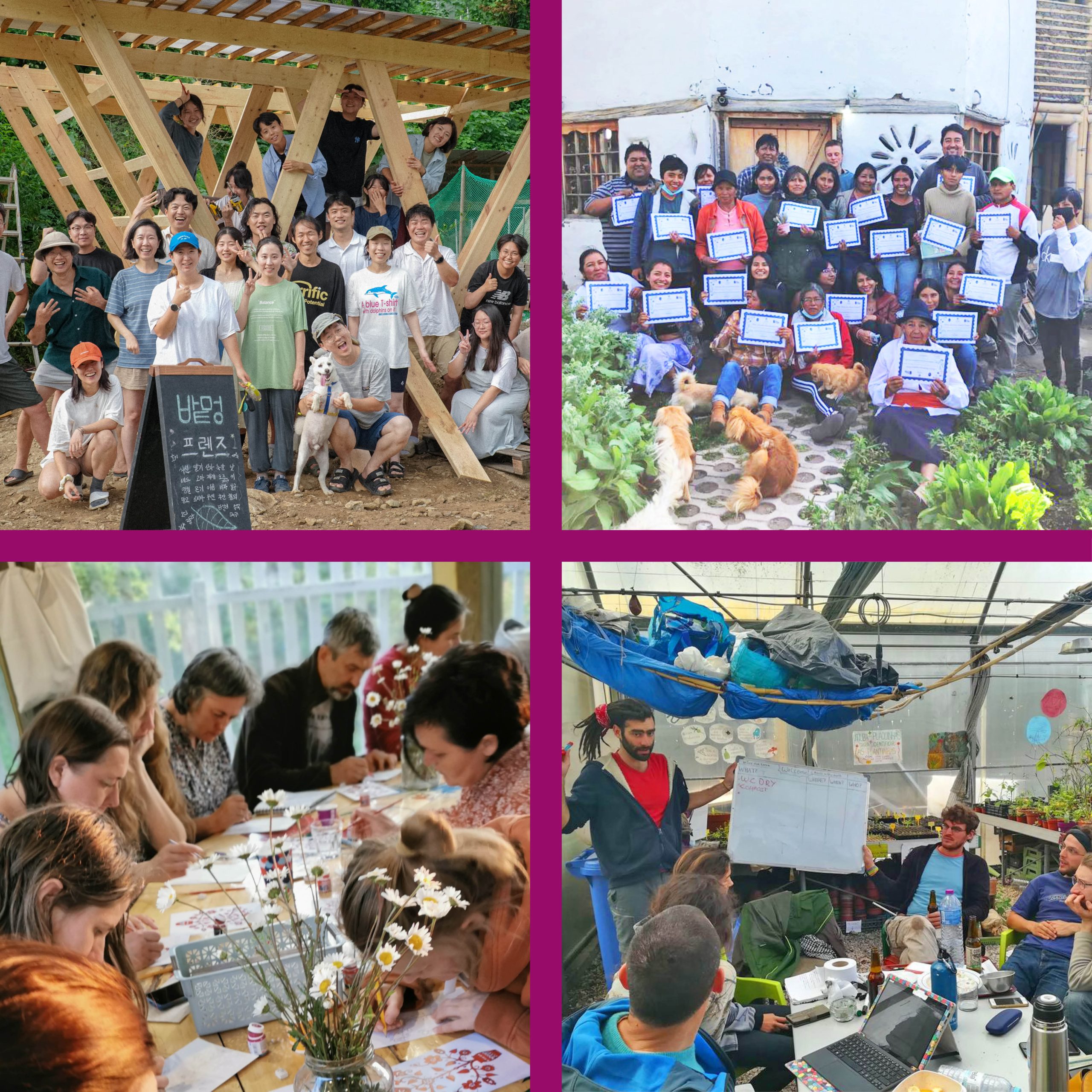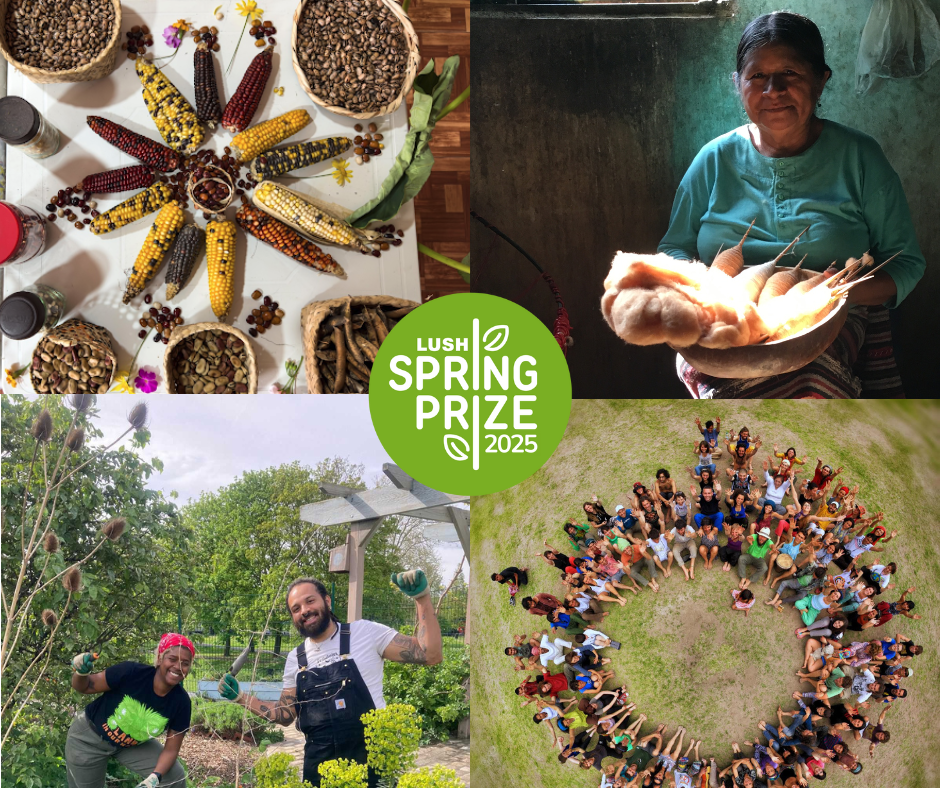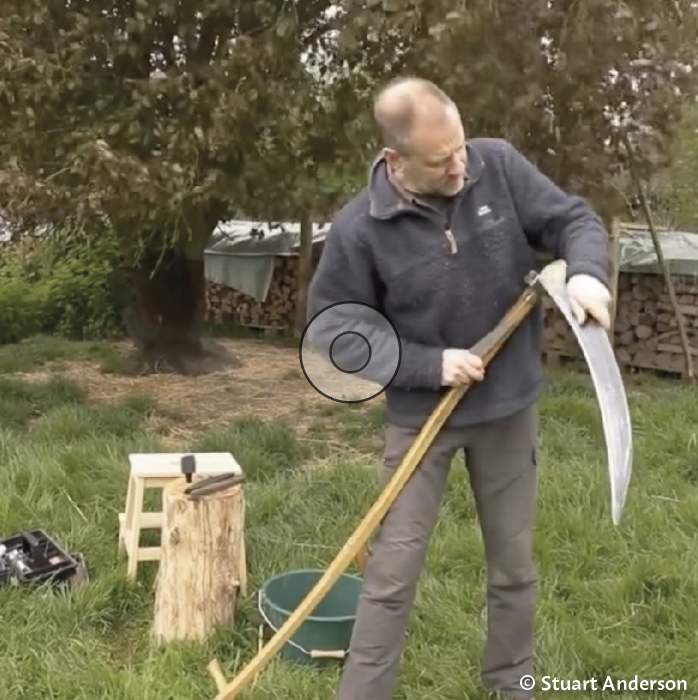This winter we built a large wood store (15m3) by the entrance to the wood from the garden. We want to dry and store this amount of timber for our masonry stove which heats the house (see PM115) and, with its triple burn function, is a highly efficient alternative to oil fired central heating.
All wood taken is a by-product of biodiversity management, reclamation of a ‘lost’ garden that has been overwhelmed by brambles and overgrown shrubs and trees, and to establish a forest garden by the house. Most of the hazel coppice stools in the woods are ‘overstood’ which, left unmanaged, will split, rot, topple and die. As we cut small areas of coppice, the woodland flora bounces back, bringing us more insects like the silver-washed fritillary butterfly. More insects mean more bats and pied and spotted flycatchers as well as other songbirds.
Human intervention in this landscape is a delicate balancing act and we are ever aware of our impact. Once, like mammoths, humans made small clearings and let light in to the woodland floor. Now we devastate the entire planet, seemingly unable to comprehend the scale of our destruction. I worry about it in the small hours…
Our woodland is an attempt to do something positive, if only on a small scale, to maintain and increase biodiversity. Our objectives are to observe and work with Nature to create a sanctuary for wild creatures, and to feed us and keep us warm in winter. They are not mutually exclusive. It has been a pleasure to work with our local Devon Wildlife Trust and the Woodland Trust who are helping us with this aim. Both are generous with their advice.
I was worried about the disturbance caused by building the log store as it is near where tawny owls nest and rear their young. We finished construction in early January and stopped cutting and stacking wood in early March. Happily, the owls still reared three owlets this year. On damp nights in early spring, we could hear their raspy demands for food. Later, in May they started to ‘branch out’. They left the nest to hop around and then practice flying from branch to branch in the huge limes, still calling for food. They liked to roost around the shelter of the woodshed. I saw evidence of their night-time presence from the tell tale ‘whitewash’ they left behind. The shed and wood processing area is a clear space for practicing hunting and the compost bins at the edge of the area provide homes for scurrying mice. So for a while, all three owlets liked to hang out together here and we often caught sight of them – when up early enough, seeing their swift, dark forms disappearing into the thick of the wood in the early morning light! The owlets have now left their nursery site and silently flown away into the wider landscape.
We are lucky to also share the neighbourhood with others like the buzzards and a barn owl who hunts most evenings, quartering the meadow at the front of the house. Our daily close encounters with wild creatures, large and small, are a great privilege. I am also reminded that what was commonplace for our ancestors is now a rarity for us, such are the cascading losses of species. The spotted flycatcher’s breeding population, for example, has declined 92% between 1967-2020 in the UK. This can be attributed to loss of habitat and insect decline caused by agricultural pesticide spraying. Even in a year, I have noticed a dramatic decline in insects in our surrounding area. I can only assume that our very dry, hot spring/early summer has affected insect breeding and thus the birds that rely on abundant invertebrates to feed their young. What worries me is that we all strangely expect decline on this scale, as if this is normal and the way of things, abundance being part of a forgotten yesteryear.
It is therefore more important than ever to share our gardens with wild creatures. To transition our farms away from industrial agriculture. To change the food system from the bottom up to enable everyone, not just the affluent and educated, to eat organic, unprocessed food. Somehow we have to affect a revolution away from the industrialised, commoditised growth model whose tentacles stretch into every aspect of our lives, however much we try to live independently from them. It is a tall order. Hence my sleeplessness in those small hours before the dawn. But this magazine is part of the grist of a worldwide movement for change. Though this is not a good time to be heard above the cacophony of chaos and dogma, there will be a time when we are listened to. Meanwhile, we can find our power through small daily practices, learn from those skilled in growing food, making and building, and be inspired by visionaries like Rob Hopkins and Manda Scott who insist that we chart pathways to a better future.
Maddy Harland and the Permaculture team
This is the editorial from Permaculture magazine issue 117. More details HERE.
You can read PM117 as part of a subscription. Full details and options HERE.
Celebrating Nature's Rhythm – Samhain
8. Working With, Not Against, Natural Forces – An Original Permaculture Principle
Maddy Harland is the co-founder and editor of Permaculture magazine and author of Fertile Edges – Regenerating the land, culture and hope.
